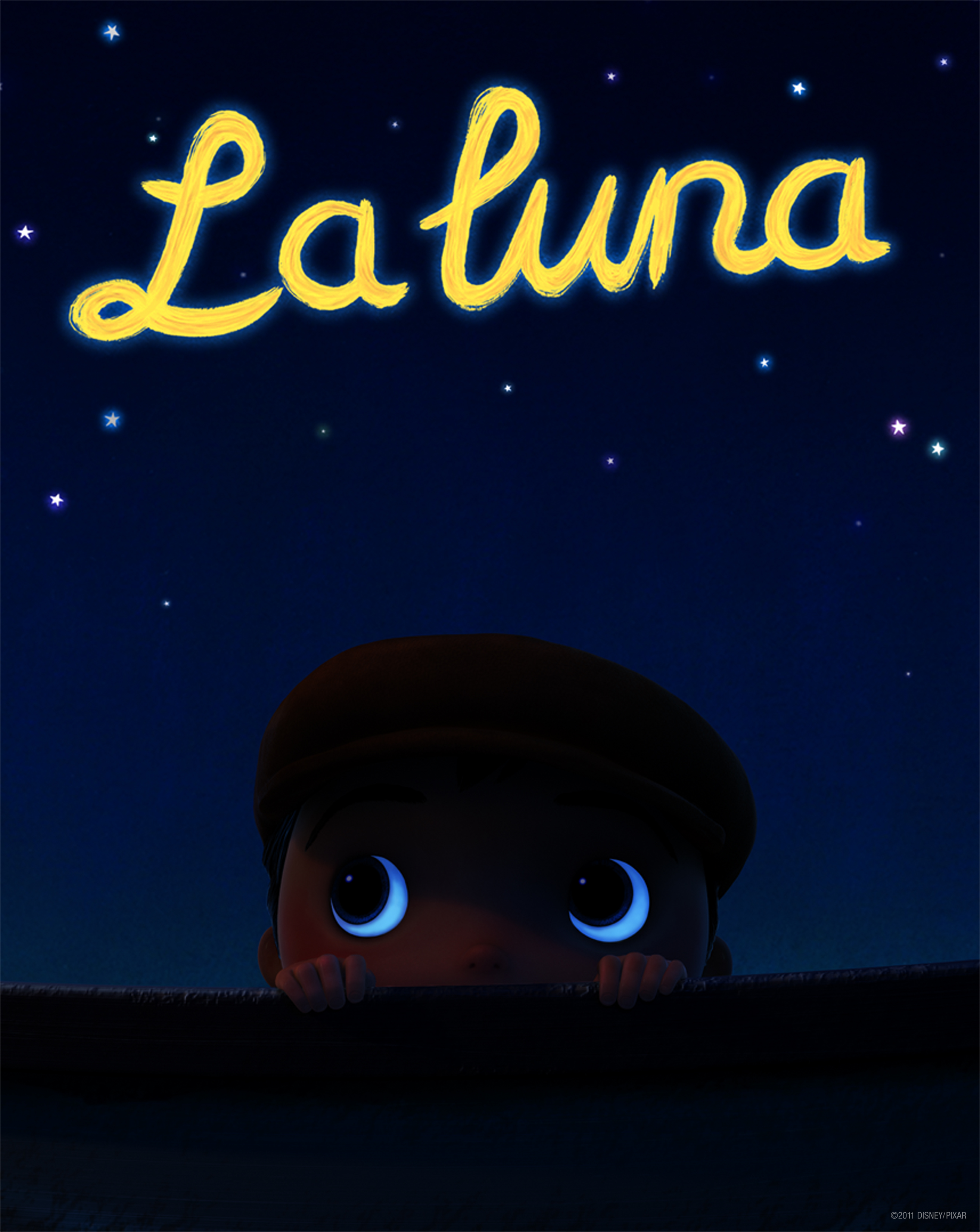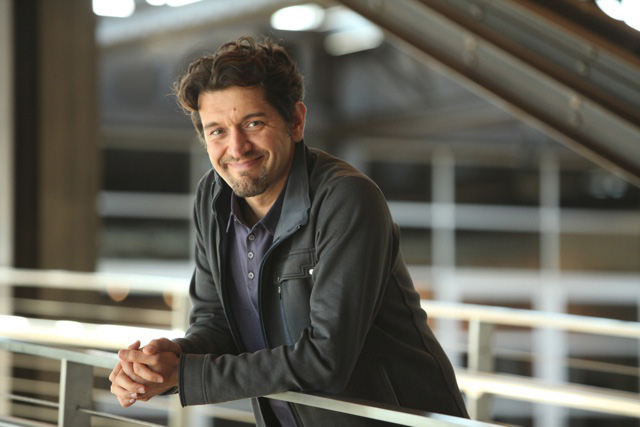Interview: Pixar's Enrico Casarosa and "La Luna"
 Saturday, November 5, 2011 at 10:00AM
Saturday, November 5, 2011 at 10:00AM Michael C here to give you a sneak peak of a Pixar pleasure headed your way soon.
 High on the long list of reasons to love Pixar is their devotion to bringing top quality animated shorts to the movie-going masses, a tradition they are keeping alive pretty much single-handedly. And they are on a roll too. With such titles as Presto, Cloudy Day and the great Day and Night, my love of which I’ve already documented here, they are developing a body a body of work to stand beside the great catalogues of classic Disney and Warner Bros. cartoons.
High on the long list of reasons to love Pixar is their devotion to bringing top quality animated shorts to the movie-going masses, a tradition they are keeping alive pretty much single-handedly. And they are on a roll too. With such titles as Presto, Cloudy Day and the great Day and Night, my love of which I’ve already documented here, they are developing a body a body of work to stand beside the great catalogues of classic Disney and Warner Bros. cartoons.
Now having attended a sneak of La Luna, the new short most of America will see attached to Brave, I am pleased to report they have another winner on their hands. La Luna is a fable about young boy caught in an inter-generational conflict as he joins his Papa and Grandpa for the first time in their nightly work. The slow reveal of the exact nature of that work is one of the film's delights which also include its elegant dialogue-free storytelling, glowing moonlit atmosphere and an especially lovely Michael Giacchino score.
La Luna is the baby of Enrico Casarosa, who is making his directing debut with this love letter to his Italian roots. He began with Pixar as a story artist on Cars and Ratatouille, and he is currently working as Head of Story for an upcoming feature. I sat down with Casarosa to discuss his new film, his influences, and to see how much I could peek behind the Pixar curtain.
Michael Cusumano: I got the impression that La Luna is a very personal film for you. Am I right in saying that?
 Enrico Casarosa, Head of Story for Pixar
Enrico Casarosa, Head of Story for Pixar
Enrico Casarosa: Yeah. I really felt I wanted to find an emotional core to it and I think Pixar is pretty adamant about trying to find connections. The directors need to find that personal story to tell. So I really looked at my childhood. I grew up in Genoa, in Italy, and I grew up with our grandfather in our house, and my dad and my grandfather never got along. So I would have very long dinners where I was definitely in the middle of these two guys, talking to me but never talking to each other. So that feeling of being a little bit stuck in the middle was something I was after. And I would be really fun to try to give a positive message of a kid choosing his own - you know - it’s not Papa’s way, it’s not Grandpa’s way, but it’s his own way. So he finds his own road. I thought that was worth sharing, it could be the core of it.
Then I mixed that with a completely fantastical kind of setting to juxtapose the very personal with something more fantastic. The inspiration to that is a lot of literature. I’m a big Italo Calvino fan. He’s a wonderful writer that we read in high school in Italy. He has, all through his novels and short stories, making the very fantastic juxtaposed with very simple characters, peasants, so that’s the kind of a feel I wanted to capture. I wanted them to be very poor, you know, working the land, fishermen. Then I thought it would really be a great juxtaposition when you find out their job is actually pretty mythical.
How is it possible to get such a personal story through such a collaborative process? [MORE AFTER THE JUMP]
 Enrico Casarosa,
Enrico Casarosa,  La Luna,
La Luna,  Pixar,
Pixar,  animated films,
animated films,  interview,
interview,  short films
short films 

